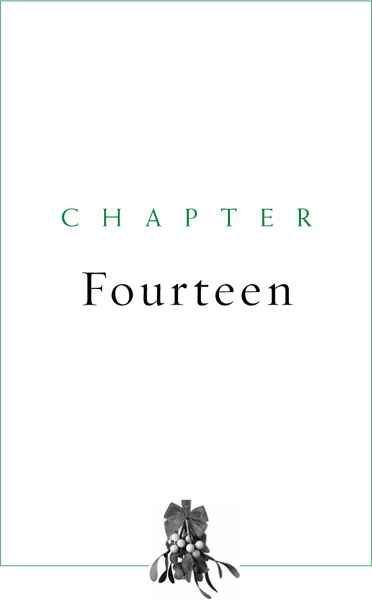
Fear thrives best in the shadow of the unknown.
 Beth Cardall’s Diary
Beth Cardall’s Diary 
It was shortly after 10 P.M., and I was sitting next to Charlotte in her hospital bed when Roxanne arrived. Charlotte had been calm and sleeping for nearly an hour. Roxanne put her hand on my shoulder as she looked at Charlotte. “Praise God,” she said softly. She hugged me, then we stepped out of the room to talk.
“What was it?” Roxanne asked.
“She had a grand mal seizure.”
“Do they know what caused it?”
“No. By the time she got to the hospital, she was fine. You’d almost think nothing had happened.”
“Is it related to the other stuff she’s been going through?”
“I don’t know. Maybe. But whatever it is, it’s getting worse.” Tears began to well up in my eyes. “I’m just so afraid. What if I lose her too?”
“Don’t even go there. You’re not going to lose her.”
“I wish you could promise me that.”
I started to cry and fell into Roxanne. She gently rubbed my back. “It’s okay, baby. It’s okay.”
A few minutes later, when I could speak, I asked, “How’s Jan?”
“She’s a little shaken up, but she’ll be okay. She’s never been through anything like that before.”
“Did she tell you what happened?”
“She said Char was just eating when she started talking funny. She asked her if she was being silly, and she said Charlotte just looked at her then started shaking.”
I groaned. “Thank goodness she was there. I was in the bathroom getting ready when it happened, I wouldn’t have even known.” I choked up again.
Roxanne put her arm around me. “She’s okay, that’s what matters.” After a few minutes she asked, “How did your date react to all the excitement?”
“My date,” I said. I had completely forgotten about Matthew. “It happened before he got there. I don’t even have his phone number. He probably just thinks I stood him up.”
“Well, don’t worry about it. If he’s a keeper, he’ll understand. And if he doesn’t, you don’t need him.”
“I don’t need him anyway,” I said. “I don’t need anyone new in my life right now. If tonight taught me anything, it’s that Charlotte needs me. She’s already lost one parent—I can’t divide my time any more than it already is. She needs all of me.”
“Okay, okay,” Roxanne said, calming me. “I understand.”
Just then a doctor walked into the room. “Mrs. Cardall?” he said, looking between Roxanne and me.
“I’m Mrs. Cardall.”
“I’m Dr. Hansen. Could I speak to you for a moment?”
“Of course.”
The doctor looked at Roxanne. “Alone.”
“It’s okay,” I said. “She’s family.”
He nodded. “I just want to update you on where we stand. Clearly, she’s had a seizure, but we don’t think it’s related to her other health problems. I’ve gone back and reviewed her records, and I want to do a few more tests to see if we can’t narrow things down a bit more. I’m particularly concerned about all of the abdominal pain she’s been experiencing.”
I was tired of hearing this. “Don’t you even have a guess what it could be?”
“They’re just guesses, but I want to test for Crohn’s disease and Whipple’s disease.”
My heart froze. “Are either of them terminal?”
“Please, I’m not saying that she has either of those diseases. Some of the symptoms are there, but it’s way too early to tell. Whipple’s disease is a rare bacterial infection that affects the gastrointestinal system. Now, it can be serious without proper treatment, and if diagnosed too late it can cause irreversible damage to the central nervous system, but it has been successfully treated with antibiotics, typically over the course of one or two years.”
I started crying. Roxanne put her arm around me.
“What is Crohn’s?” Roxanne asked.
“It’s a bowel disease that causes inflammation of the lining of the digestive tract. That would explain the abdominal pain she’s been having.”
“Is it . . .” Roxanne looked at me and stopped.
“Terminal? No. Crohn’s is painful and can lead to more serious ailments, but therapies can bring about relief and even long-term remission.”
Neither sounded good. How much more did she have to suffer? I thought. “When will you do the tests?” I asked.
“We’d like to do some of them now,” he said, “while she’s still in the hospital.”
“We need to know what’s wrong. I can’t take this anymore.”
“To diagnose Whipple’s we generally have to perform an upper endoscopy, and for Crohn’s a colonoscopy. We would like to recommend you to a gastroenterologist who will familiarize you with these procedures.”
“Is it expensive?” I asked.
“It should be covered by your insurance.”
After Marc died, his work had put me on their COBRA plan, but I couldn’t afford the monthly premium and in January I let it lapse. “We don’t have health insurance anymore,” I said.
Roxanne put her hand on my back. “Ray and I can help.”
“You can’t do that,” I said. “I’ll get a loan.”
The doctor looked at me sympathetically. “Let’s do this: We’ll first run another blood test to see if her anemia has improved. If it’s better, we might be able to rule out an upper endoscopy. We’ll put off the colonoscopy until we’re sure it’s not Whipple’s.”
“Thank you,” I said.
“You’re welcome,” Dr. Hansen said. “Have a good night.” He walked off.
“I can’t stand this,” I said to Roxanne. I put my head on her shoulder and cried.